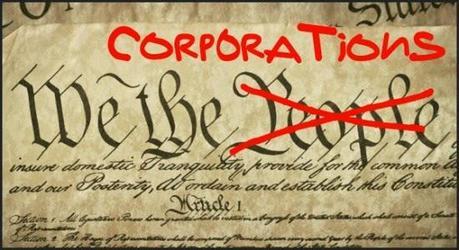
Simon Maloy, "GOP's Toxic Contraception Politics: Why Being the Party of 'Uncle Sugar' Will Doom Them":
While they say "religious liberty," the heart of this matter is the conservative belief that ladies who have sex should buy their own sex drugs using their own sex money. There's a moral component, they argue, given that contraceptives facilitate anything from wanton licentiousness to euthanasia to abortion. (None of that is true.)
Rachel Maddow, "Contraception? You'll Have to Ask Your Boss" (note: this is a video link):
No abortion and no access to contraception has slowly become the party line for Republicans.
Eli Clifton, "Hobby Lobby's Secret Agenda: How It's Quietly Funding a Vast Right-Wing Movement":
Seen in this light, the ideological connection between the Hobby Lobby suit and Arizona's recently vetoed legislation becomes clearer: One seeks to allow companies the right to deny contraceptive coverage while the other would permit businesses to deny services to LGBT people.
Bill Blum, "Why the Biggest Winners in the Hobby Lobby Case May be the Koch Brothers":
The billionaire industrialists, who helped bankroll the unsuccessful attempt to overturn the ACA’s individual mandate before the Supreme Court in 2012, are also key orchestrators and potential beneficiaries of the campaign to upend the ACA’s requirement that employer-sponsored health care plans include a full range of birth control benefits.
Gene Robinson, "Religious Freedom, or a License to Discriminate?":
The license (or "exemption") to ignore anti-discrimination laws based on an individual's religious beliefs would set a dangerous precedent, and one which has already been disallowed over other issues in our American history.
New York Times Editors, "Crying Wolf on Religious Liberty":
The real threat to religious liberty comes from the owners trying to impose their religious beliefs on thousands of employees.
Emily Martin and Jennifer Pizer, "Will 'Religious Liberty' Get a Second Shot in Contraception Case?":
As a result, if the Supreme Court decides an arts and crafts chain is capable of religious beliefs and thus can have a religious right to deny its employees insurance coverage for birth control, then airlines might be able to assert a religious right to pay men more than women, bakeries could assert a religious right to deny employees insurance coverage for vaccinations, hotels might be able to assert a religious right to refuse rooms to customers based on race, and restaurants could assert a religious right to refuse to serve gay couples.
Michelle Goldberg, "Corporate Religious Freedom Means Freedom to Discriminate":
After all, if corporations enjoy the free exercise of religion, all sorts of civil rights protections will be endangered. Nationwide, businesses have claimed that religious liberty grants them the right to discriminate against gay customers. Some religious sects object to placing women in positions of authority over men – if corporations have religious liberty, would such beliefs allow them to deny women promotions
Ian Millhiser, "When 'Religious Liberty' Was Used to Deny All Health Care to Women and Not Just Birth Control":
Nearly three decades ago, the Fremont Christian School claimed a similar right to deny health coverage to its female employees, citing its religious beliefs as justification for doing so. Fremont Christian’s case does bear one important difference from Hobby Lobby’s, however, they did not just want to deny birth control to their employees — they wanted to deny all health coverage to many of the women in their employ.
Lucas Grindley, "Joe Biden Has Blunt Speech for HRC Gala":
"It's close to barbaric," Biden said of it still being legal to fire someone for being gay or lesbian.
Patricia Miller, "Why Obama's Compromise with Catholic Bishops Was a Bad Idea":
But it's important to remember, in the words of E.J. Dionne, that Obama’s attempt to find a compromise to the bishops' objections to the mandate was a "clear statement that President Obama never wanted this fight." It was the bishops who turned an innocuous effort to extend contraceptive access to more women into the cornerstone of their "religious liberty" fight.
Patricia Miller, "Hobby Lobby Case Isn't Really About Contraception":
The Catholic bishops were among the earliest promulgators of the conflation of ECPs and abortion. Around the time the first ECPs were approved, new laws were being considered to require insurers to cover prescription contraceptives, which were routinely excluded from health insurance. The Catholic Church was looking for ways to quash the measures based on its moral opposition to non-procreative sex.
David Delmar:
If Hobby Lobby is a person of faith, then why has it never taken communion or been baptized?
Sarah Posner, "Corporations Have Consciences and Contraceptives Are Cheap: Hobby Lobby at the Supreme Court":
What was most striking, though, was how all three female justices, Sonia Sotomayor, Elena Kagan, and Ruth Bader Ginsburg, fired the most challenging questions at the companies' lawyer, Paul Clement, confronting the essential underpinnings of his clients' claims.
Katie McDonough, "Justices Ginsburg, Sotomayor and Kagan Come Out Swinging Against Hobby Lobby Corporate Religion Claim":
Justices Sonia Sotomayor, Elena Kagan and Ruth Bader Ginsburg dominated much of the questioning at the start of Tuesday’s oral arguments in Sebelius v. Hobby Lobby Stores, Inc., suggesting that at least three of the court’s nine justices are dubious of the company’s claim that corporations can have religious faith and that providing employees with contraceptive coverage is a violation of its "religious liberty" under the Religious Freedom Restoration Act (RFRA).
Cheryl B. Anderson, "The Bad Theology Behind Opposing the Contraception Mandate":
Two millennia have passed since then, but some religious leaders are still tying up burdens for others to bear, and they are still using the same legalistic tactics attributed to Jesus’ opponents in the New Testament.
Then, as now, we are being asked to believe that a tradition rooted in compassion and care for the most vulnerable somehow violates God’s law.
The graphic is from Lucas O'Connor in San Diego Free Press.

